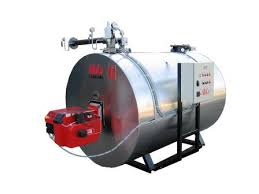
Dec . 27, 2024 02:43 Back to list
steam boiler chemical feed system
Understanding Steam Boiler Chemical Feed Systems
Steam boilers play a critical role in various industrial processes, providing heat and power through steam generation. To ensure optimal performance and longevity of steam boilers, it is essential to maintain proper water quality. This is where chemical feed systems come into play. These systems are designed to inject specific chemicals into the boiler water to control and maintain its properties, ensuring efficient operation and minimizing potential damage.
Importance of Water Quality in Steam Boilers
Water quality directly influences the efficiency, safety, and lifespan of steam boilers. Poor water quality can lead to various problems such as scale formation, corrosion, and foaming. Scale buildup reduces heat transfer efficiency, increases fuel consumption, and can lead to overheating of the boiler’s metal components. Corrosion can compromise the structural integrity of the boiler, resulting in leaks and failures. Additionally, foaming can lead to the carryover of water into the steam, causing damage to equipment downstream and impacting process quality.
To combat these issues, operators must monitor and treat the boiler water continuously. This involves using chemicals that address specific water quality issues, such as oxygen scavengers, scale inhibitors, pH adjusters, and anti-foaming agents.
Components of a Chemical Feed System
A typical steam boiler chemical feed system consists of several key components
1. Chemical Storage Tanks These tanks are used to store the various chemicals needed for treatment. Depending on the type of chemicals used, these tanks must be constructed from appropriate materials to prevent corrosion and leaks.
2. Pumps Chemical feed pumps transport the treatment chemicals from the storage tanks to the boiler feedwater line. The pumps need to be capable of handling the specific chemical properties, including viscosity and corrosiveness.
3. Flow Meters To ensure precise dosing of chemicals, flow meters are utilized. They measure the amount of chemical being injected into the feedwater, allowing operators to adjust dosing rates according to real-time monitoring data.
4. Control Systems Modern chemical feed systems often incorporate automated control systems that monitor water quality parameters. This allows for dynamic adjustment of chemical dosing based on factors like pH, hardness, and total dissolved solids (TDS).
steam boiler chemical feed system

Types of Chemicals Used
The choice of chemical additives depends on the specific challenges faced by the steam boiler and the quality of the feedwater. Some common types of chemicals include
- Oxygen Scavengers These chemicals, such as sodium sulfite, are used to remove dissolved oxygen from the water, preventing corrosion in the boiler.
- Scale Inhibitors Polyphosphates and other scale inhibitors help prevent the formation of scale by interfering with the crystallization of minerals like calcium and magnesium.
- pH Adjusters Chemicals such as sodium hydroxide or sulfuric acid are used to maintain the pH within an optimal range, enhancing the effectiveness of other treatments and minimizing corrosion.
- Anti-foaming Agents These substances reduce the surface tension of water, minimizing the formation of foam that can lead to carryover.
Best Practices for Operation
To maximize the effectiveness of a chemical feed system, operators should adhere to best practices
- Regularly monitor water quality parameters and adjust chemical feed rates accordingly. - Use automated systems where possible to ensure precise dosing and reduce human error. - Keep accurate records of chemical usage and water quality trends to identify potential issues early. - Conduct routine maintenance on all components of the chemical feed system to ensure they function correctly.
Conclusion
Steam boiler chemical feed systems are vital for maintaining water quality and ensuring the efficient and safe operation of boilers. By properly managing water chemistry, industries can enhance efficiency, reduce downtime, and prolong the lifespan of their steam systems. Investing in a robust chemical feed system not only safeguards equipment but also contributes positively to the broader operational efficiency and environmental stewardship efforts of industrial processes.
-
High-Efficiency Commercial Oil Fired Steam Boiler for Industry
NewsJul.30,2025
-
High-Efficiency Biomass Fired Thermal Oil Boiler Solutions
NewsJul.30,2025
-
High Efficiency Gas Fired Thermal Oil Boiler for Industrial Heating
NewsJul.29,2025
-
High-Efficiency Gas Fired Hot Water Boiler for Sale – Reliable & Affordable
NewsJul.29,2025
-
High Efficiency Biomass Fired Hot Water Boiler for Industrial and Commercial Use
NewsJul.29,2025
-
High-Efficiency Biomass Fired Hot Water Boiler for Industrial Use
NewsJul.28,2025
Related PRODUCTS






















